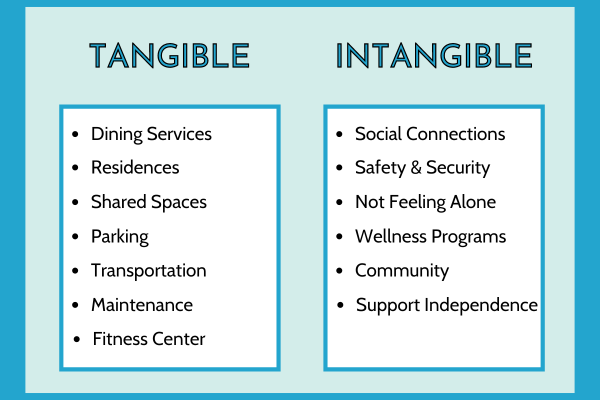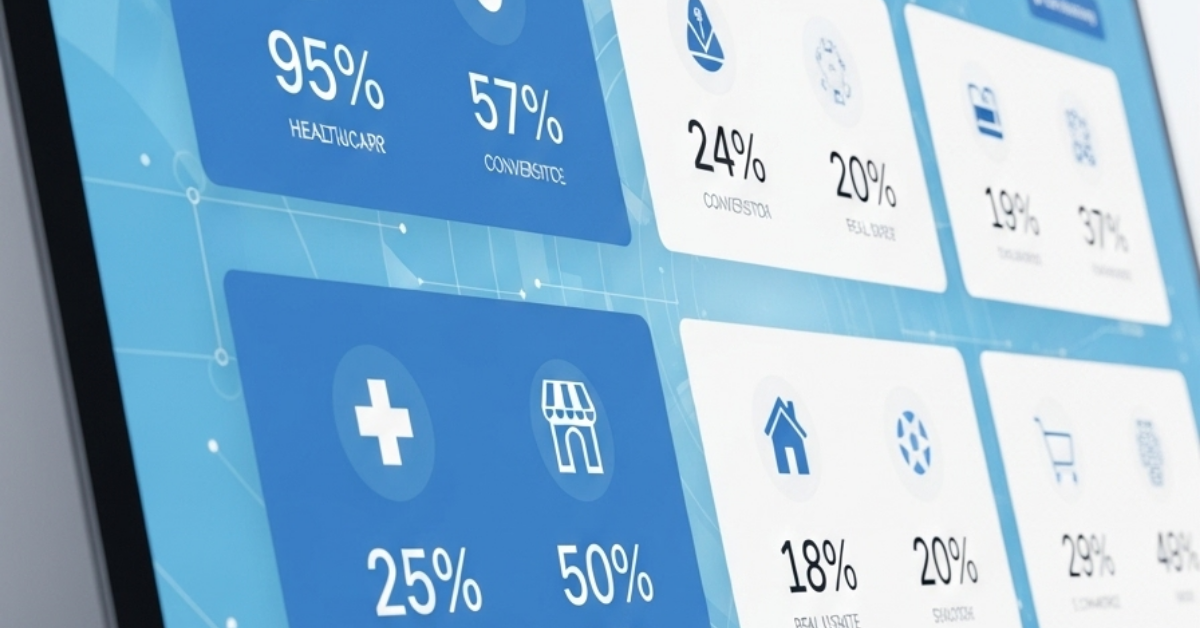One of my many goals for 2024 is to prioritize relaxing and literally unplugging from work. I’ll admit that I am a bit of a workaholic and while that has been a key factor in driving my success, it can also be my kryptonite.
So, I’m really making an effort this year to step away from work. One way I do this is by walking every morning and another one of my favorite ways to relax is by reading and I just have to share my thoughts on the latest book I read, “Dark Horse: Achieving Success Through the Pursuit of Fulfillment.”
Stick with me on this because it ties in perfectly with the concept of personalization in senior living marketing.
What is a Dark Horse?
You’ve probably heard the term “dark horse” in the context of a sporting event or competition. The “dark horse” is usually the outlier, an unknown team or individual that emerges from the shadows to defy the odds en route to victory.
Todd Rose and Ogi Ogas, the authors of “Dark Horse: Achieving Success Through the Pursuit of Fulfillment,” explained that the expression “dark horse” made its debut in everyday lexicon after the publication of The Young Duke in 1831. In this novel, the main character places a bet on a horse race only to lose after the race is won by a dark horse.
The dark horse mentality means you’re not afraid to buck the conventional playbook in business and marketing. What might have worked as successful marketing tactics five to ten years ago, now don’t yield the same results they once did. This leaves you with two choices: stay on the conventional path and hope for the best or embrace personalization in your senior living marketing strategy.
Embracing the Dark Horse Mentality
Many of us grew up in the age of standardization. Go to school, get good grades, go to college, do your internships, work and follow the right path. That will bring you success. Schools, education systems and society supported that in the work and education environments.
This is the path that I followed.
I graduated high school with high honors. I started a paper route at age 13 and always worked including putting myself through college. I attended Bentley University and went out looking for her first job and ended up in sales because I was told that I had the right stuff.
Sales was a great fit for me and I did well, working for large corporations like NEC and 3M. Eventually, I joined the start-up world in 2017. A family member said “Why would you leave 3M? It is such a great company.” But inside, I always had a hankering to start a company. However, with the promise of great pay and benefits, followed by kids and material possessions, it is easier to stay in the path of standardization.
Taking a Leap of Faith
Working for a startup did present a new set of rules and a different view of the business world. Then in 2017, I told my partner that I was done working for other people and wanted to start my own company. I contacted a trusted friend and colleague, Brenda Limone, to join the adventure as a co-founder. That’s LifestyleCX (now Waypoint) was born.
For six months, my mornings greeted me with the thought, “Oh no! What did I do?” But now, seven years later, I have no regrets—pandemic and all!
More and more individuals are forging their own paths as Dark Horses. The gig economy and working from home have made a huge impact. People want fulfillment and more time with the people they love. We are now in the age of personalization. What is key for one individual is not the same for all. This movement from standardization to personalization in senior living is where the future lies.
Brenda and I started LifestyleCX to help senior living providers engage prospects with easy-to-use and engaging technology, capture essential customer data, and then share that with sales teams so they could offer a more personalized experience for senior living prospects. Our intent was to fill the sales funnel with more qualified prospects and increase occupancy through personalization and competitive differentiation.

The Age of Personalization in Senior Living Marketing
We know that between 75 and 90% of people start their senior living search online. And we know that 92% of consumers now expect personalization in their everyday lives according to Salesforce and Evergage. And 99% of marketers understand that personalization creates more bottom-line revenue as reported by Salesforce and Evergage.
So what is happening to help those prospects have a more personalized experience and marketing and operations? Interestingly, in an industry where personalization should be table stakes, there are zero stats, marketing studies, or articles for the space. A space where real estate meets hospitality meets support. What other sale is there that would be so personal? A complex sale involving emotions, physical moves, financial means and family support. Selling to large groups of adult daughters, sons or older adults doesn’t cut it for a sale in this complex. We must look at value-based selling and understand the needs of the individuals we are selling and serving. It is key for the long-term success of the senior housing industry.
As a step to support the industry, Brenda and I created the Waypoint Lifestyle Survey.

An easy-to-use, fun and engaging survey or quiz that helps engage prospects looking for senior living, allows them to comfortably start the process, share some key data and drive their own journey. Sales is informed with text and email notifications with the prospect lead and data allowing them to respond quickly and to offer a personalized conversation right out of the gate.
The full suite of Waypoint products was built for customization. No community is the same so your chatbot and CTAs should not be either. What works for one community, may not work for another.
Why Personalization Matters in Senior Living
1. Building Trust and Credibility
Senior living decisions are often deeply emotional and highly personal. Prospective residents and their families seek communities that understand and cater to their individual needs and preferences. Personalization helps build trust by showing that you genuinely care about their specific situation, rather than offering a one-size-fits-all solution.
2. Enhancing the Customer Experience
A personalized approach makes the customer journey smoother and more enjoyable. When marketing efforts are tailored to reflect the unique aspects of each individual’s needs, it creates a more engaging and relevant experience. This can lead to higher engagement rates, more inquiries, and ultimately, a stronger likelihood of conversion.
3. Standing Out in a Crowded Market
The senior living market is saturated with options, making it crucial to differentiate your community from others. Personalized marketing allows you to highlight the features and benefits that align specifically with each prospect’s desires, making your offering stand out in their minds. In senior living tangible features are table stakes! The intangibles that senior living sales professionals must convey to prospects are key. But only if it is important to the prospective customer. Below is one of my favorite cartoons that conveys the need to understand your customer’s needs in order to present what is meaningful to them…personalizing.


Strategies for Effective Personalization in Senior Living Marketing
1. Leverage Data for Insights
To personalize effectively, start by gathering and analyzing data. This includes demographic information, intent data, interests, and needs and preferences. Use CRM systems, marketing automation and data analytics to understand your audience’s needs better. For example, knowing a prospect’s interest in specific activities or their preferred living arrangements can help tailor your messaging and offerings.
2. Create Targeted Content
Content is a powerful tool for personalization. Develop content that speaks directly to the needs and interests of different segments of your audience. This could include blog posts, video testimonials, or informational brochures that address specific concerns, such as healthcare options or recreational activities. Personalizing content to reflect the diverse interests of potential residents can significantly enhance its impact.
3. Personalized Communication
Move beyond generic emails and newsletters. Use personalized messaging that acknowledges the recipient’s specific needs or interests. For example, if a prospect has shown interest in memory care services, send them information and updates specifically related to that area. Personal touches, such as addressing them by name and referencing their unique circumstances, can make your communications more engaging.
4. Tailored Tours and Events
When a prospective resident or family visits your community, offer a customized tour that highlights aspects of the community that align with their interests. If they’re passionate about gardening, showcase your community garden. If they have a strong interest in social activities, highlight your events and clubs. Tailoring the tour experience helps prospects envision themselves in your community more vividly.
5. Engage Through Multiple Channels
Different individuals prefer various methods of communication. Ensure your personalized marketing strategy includes multiple channels, such as email, social media, and direct mail. Tailor your approach to each channel, ensuring that the message is consistent but adapted to fit the medium and the recipient’s preferences.
6. Solicit Feedback and Adapt
Personalization is an ongoing process. Regularly solicit feedback from your residents and their families to understand what’s working and where there might be room for improvement. Use this feedback to continuously refine and adapt your marketing strategies to better meet their evolving needs.
Leverage the Waypoint Lifestyle ProForm technology to offer a pre and post-tour survey and capture that data in your CRM.
See the Waypoint Converts Lifestyle Quiz in Action!
If your senior living community is looking to improve its online presence by taking website interactivity to the next level, consider exploring our options here at Waypoint.
Our Lifestyle Surveys are a great tool to capture lifestyle information, including customer preferences and needs. This data is invaluable to your sales team as it lets them personalize the sales journey.
Watch the video below to see how the Waypoint Lifestyle Survey works.





